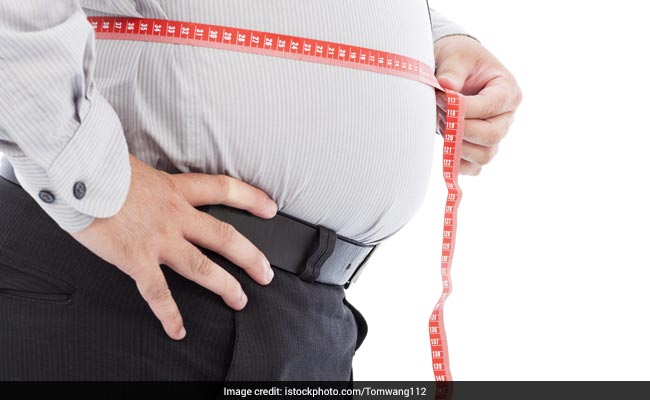The truth about fat and bloating and their causes.
The truth about fat and bloating and their causes.
Blog Article
Exploring the Difference In Between Bloating and Fat: Vital Insights for Better Digestive Health And Wellness
Understanding the difference in between bloating and body fat is important for people seeking to improve their digestive wellness. While bloating is frequently a short-term problem linked to nutritional behaviors, body fat represents a much more steady component influenced by long-lasting way of life selections. Recognizing these differences not only aids in efficient administration of gastrointestinal discomfort yet also informs techniques for healthy and balanced weight upkeep. As we discover these important insights, one need to take into consideration how attending to these concerns can lead to significant improvements in overall well-being and high quality of life.
Comprehending Bloating

In addition, bloating can be exacerbated by conditions such as irritable bowel syndrome (IBS) or food intolerances, where the gastrointestinal system struggles to process certain compounds efficiently. Eating also promptly, taking in carbonated drinks, or overindulging can additionally set off bloating by raising the volume of gas and food within the belly and intestines.
Stress and anxiety and hormonal modifications can affect gut motility and add to bloating. Identifying the triggers particular to a person's way of living and diet is crucial for managing this condition. Generally, understanding the diverse reasons of bloating is essential for developing efficient methods to alleviate discomfort and enhance digestive health.
What Is Body Fat?
Composed mostly of adipocytes, or fat cells, body fat plays a crucial function in keeping total health. It is categorized into two primary types: subcutaneous fat, located just underneath the skin, and natural fat, which borders interior organs.
In addition to energy storage space, body fat is indispensable to hormonal agent guideline, insulation, and security of important organs - bloating and fat. It serves as a reservoir for fat-soluble vitamins, such as A, D, E, and K, promoting their absorption and metabolic use. Adipose tissue is metabolically energetic, generating hormones like leptin and adiponectin, which are involved in cravings policy and insulin sensitivity.

Body fat also contributes in thermoregulation, aiding to preserve body temperature level. While some amount of body fat is essential for health and wellness, extreme accumulation can cause problems such as obesity, diabetes mellitus, and heart disease. Understanding the complexities of body fat is crucial for promoting better wellness and avoiding condition, emphasizing the relevance of balanced body make-up.
Key Differences In Between Bloating and Fat
Frequently misconstrued, bloating and body fat are two unique problems that can affect a person's look and comfort. Bloating refers to an awkward swelling in the abdominal area created by excessive gas or liquid retention, causing a short-lived increase in size. This problem can fluctuate throughout the day, typically connected to nutritional choices or digestion concerns, and is characterized by sensations of fullness or stress.
In comparison, body fat is a secure component of body composition, representing kept power and playing a crucial role in different physical features. Unlike bloating, body fat does not commonly fluctuate rapidly and is influenced by long-term dietary practices, activity degrees, and metabolic variables. It accumulates in time, adding to general body shape and health and wellness.
In addition, while bloating can create discomfort and might be relieved with dietary changes or way of living adjustments, body fat reduction usually calls for a much more prolonged dedication to diet plan and exercise - fat and bloating. Acknowledging these differences is important for understanding one's body and handling health and wellness effectively, as each problem requires distinct strategies for enhancement and relief
Reasons of Bloating
Bloating can occur from a variety of underlying variables, each adding to the uncomfortable experience of fullness and stomach swelling. One main reason is the consumption of air, which can occur while consuming or drinking also rapidly. This too much air can collect in the digestion tract, resulting in discomfort.
In addition, particular foods are well-known for creating bloating, especially those high in fiber, such as beans, lentils, and cruciferous vegetables. These foods can bring about boosted gas manufacturing during food digestion. Lactose intolerance is another considerable factor, as individuals doing not have the enzyme lactase might experience bloating after taking in milk products.
Moreover, artificial sweeteners, specifically sugar alcohols, can disrupt digestive tract feature and cause bloating. Intestinal problems, such as irritable bowel disorder (IBS) and gastric disease, can likewise show up as bloating due to impaired digestion or swelling.
Hormone fluctuations, especially throughout menstrual cycle, can lead to momentary bloating too. Stress and discover this info here stress and anxiety can aggravate gastrointestinal concerns, better contributing to the feeling of bloating. Recognizing these reasons is essential in resolving and alleviating this typical pain.
Tips for Taking Care Of Digestive Health
Attending to the factors that add to bloating is just the start of promoting better gastrointestinal wellness. To boost this aspect of wellness, embracing an all natural method is crucial. Prioritizing a balanced diet regimen abundant in fiber can significantly benefit food digestion. Foods such as fruits, veggies, and whole grains promote normal digestive tract motions and decrease the likelihood of irregular bowel movements, a typical trigger for bloating.
Hydration plays a vital duty also; adequate water intake assists the digestive system function ideally and can ease bloating. bloating vs fat. Furthermore, practicing from this source mindful consuming-- such as chewing food extensively and eating gradually-- can aid in food digestion and minimize air ingesting, which frequently aggravates bloating

Last but not least, incorporating probiotics into your regimen, whether via supplements or fermented foods, can foster a healthy digestive tract microbiome, better supporting gastrointestinal procedures. By welcoming these strategies, individuals can accomplish a much more well balanced and comfy digestive experience.

Final Thought
In verdict, comparing bloating and body fat is important for enhancing digestive system health and overall well-being. Bloating, typically a momentary problem connected to nutritional selections, contrasts with body fat, which mirrors long-term lifestyle habits. Recognizing the causes and manifestations of each can direct individuals in making notified dietary modifications and way of life modifications. Eventually, this understanding promotes much better management of gastrointestinal health and sustains initiatives toward sustainable fat reduction.
Report this page